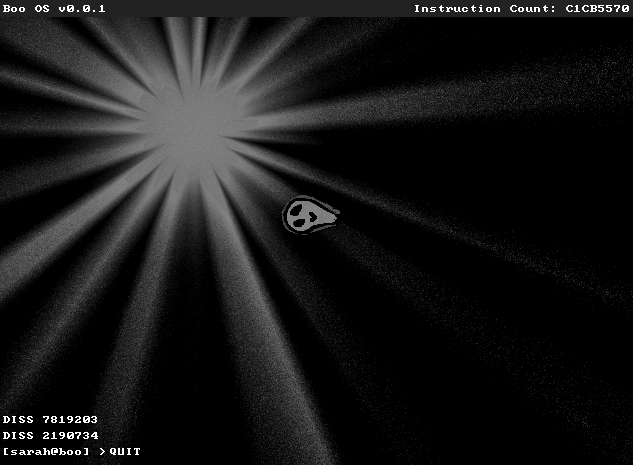
I spent my recent evenings writing an operating system in an assembly language that I also developed to compile to a custom bytecode that I also designed to run on an virtual machine that I also implemented.
A meditation on recursive complexity and what actually makes me happy.
A meditation on recursive complexity and what actually makes me happy.

It is completely useless. All that work, and you can only run a few commands, and one of them is QUIT.
I have never loved a piece of software more.
I have never loved a piece of software more.
The kernel is 832 lines of custom assembly. ~300 are dedicates to embedding binary data like font bitmaps. 

This weekend my plan is implement enough of a shell for the operating system so it can do some proper self-introspection and self-modification.
My latest project on the adventure of discovering what makes my brain happy is giving it a system suitable for fractal diving into.
I pushed the source code for the VM, Assembler and OS here for those interested. Docs are still a work in progress and probably reflect my thinking at the time and not what is actually implements.
git.openprivacy.ca/sarah/boo-os/s…
git.openprivacy.ca/sarah/boo-os/s…
As the readme says. This is a meditation on recursive complexity. I was already set on writing a new language and building one from the ground up on a custom instruction set seemed like a great idea.
This project has explicitly no point other than to make me happy.
This project has explicitly no point other than to make me happy.
This thread got way more attention that I thought it would. I deeply underestimated Twitter's desire for my silly systems projects.
If you liked this, you might also like that time I spent a weekend tricking a chess AI into letting me win:
If you liked this, you might also like that time I spent a weekend tricking a chess AI into letting me win:
https://twitter.com/SarahJamieLewis/status/1333582460173512704
Indirect Jump is a cursed instruction so I definitely had to include it.
• • •
Missing some Tweet in this thread? You can try to
force a refresh





